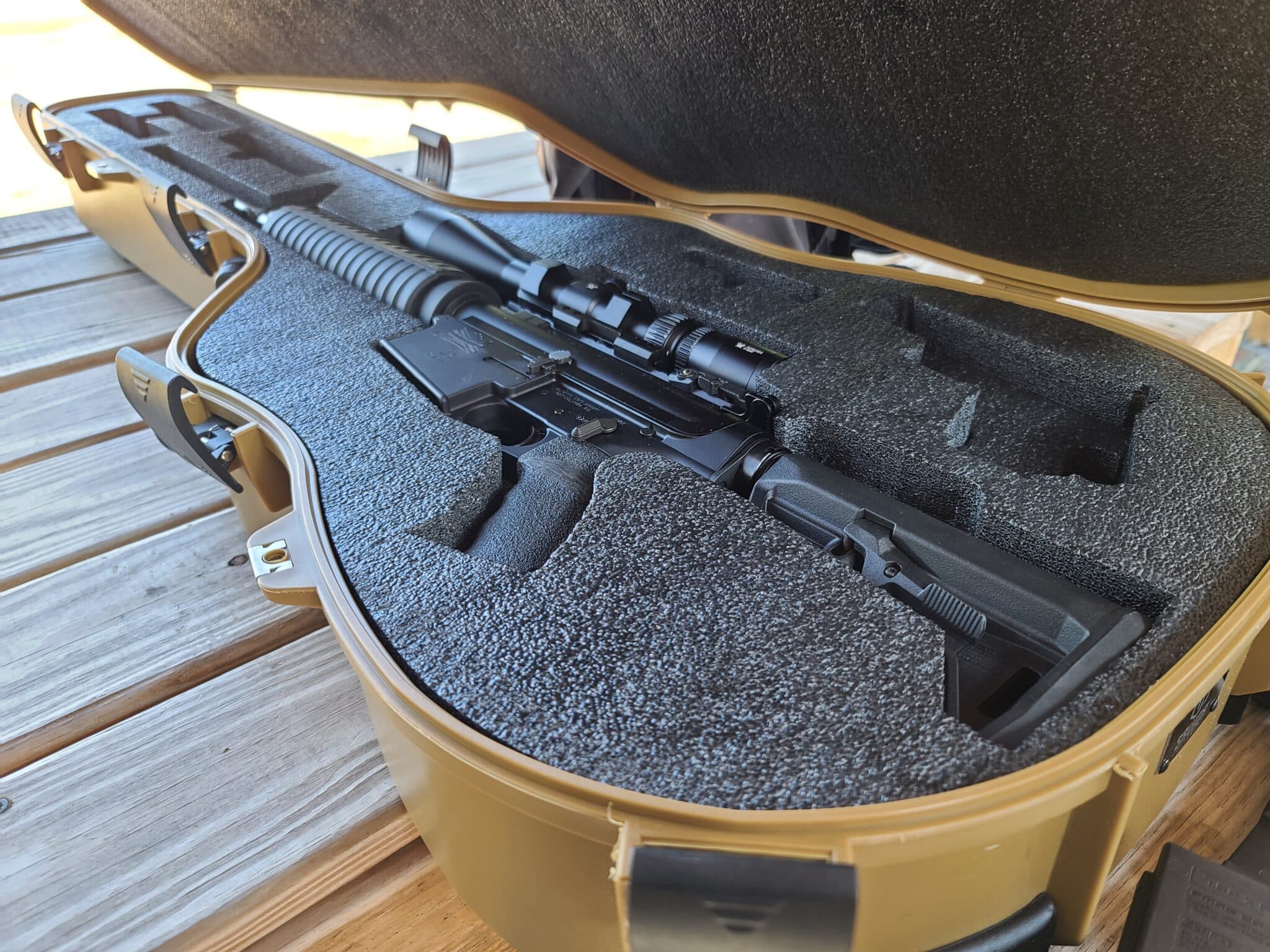Texans have long embraced their rights to self-defense and the protection of their property, making the topic of weapons for Texans both relevant and significant. As the state continues to evolve its laws and regulations surrounding firearms and other defensive tools, residents are increasingly seeking information on how to legally and responsibly arm themselves. Whether you're a seasoned gun enthusiast or someone looking to understand the basics, this guide dives deep into the world of weapons for Texans, offering expert advice, legal insights, and practical recommendations to help you make informed decisions.
In a state known for its strong traditions of personal freedom and self-reliance, the choice of weapons for Texans goes beyond mere necessity—it's a reflection of lifestyle, values, and preparedness. This article explores the legal framework governing firearms and other defensive tools in Texas, provides an overview of popular weapon types, and highlights essential safety practices. By the end, you'll have a comprehensive understanding of the best options available to you as a Texan.
With the rise in demand for reliable information on weapons for Texans, it's crucial to approach the subject with clarity and responsibility. This guide aims to equip you with the knowledge you need to navigate the complexities of arming yourself legally and safely. From understanding the nuances of Texas gun laws to selecting the right weapon for your needs, we'll cover everything you need to know to stay protected and informed.
Read also:Unveiling The Latest Trade Rumors Mlb Yankees What Lies Ahead
What Are the Key Laws Surrounding Weapons for Texans?
Understanding the legal framework governing weapons for Texans is the first step toward responsible ownership. Texas has some of the most permissive gun laws in the United States, but that doesn't mean there aren't rules to follow. Key regulations include the requirement for a license to carry handguns openly or concealed, restrictions on certain types of firearms, and specific guidelines for transporting weapons. For instance, while rifles and shotguns can generally be transported without a license, handguns must be stored in a locked container or carried by a licensed individual.
Additionally, it's important to note that local ordinances may impose stricter rules than state laws. Always check with your city or county to ensure compliance. For example, some municipalities prohibit carrying firearms in certain public spaces, such as bars or schools. Staying informed about these regulations not only keeps you on the right side of the law but also demonstrates your commitment to responsible ownership.
How Do I Choose the Right Weapon for My Needs?
Selecting the appropriate weapon depends on several factors, including your intended use, skill level, and personal preferences. For home defense, many Texans opt for shotguns or rifles due to their stopping power and ease of use. Handguns, on the other hand, are favored for concealed carry because of their portability and versatility. When evaluating weapons for Texans, consider factors like caliber, recoil, and ease of maintenance.
Another crucial aspect is training. No matter how advanced your weapon is, it's only as effective as your ability to use it. Enrolling in a firearms training course can significantly enhance your skills and confidence. Look for instructors certified by the Texas Department of Public Safety (DPS) to ensure you receive high-quality instruction aligned with state standards.
Can I Transport My Weapon Across State Lines?
While Texas laws are relatively lenient, transporting weapons across state lines introduces a new set of challenges. Federal regulations, as well as the laws of the states you plan to visit, must be considered. The Firearms Owners' Protection Act (FOPA) provides some protections for interstate travel, allowing licensed individuals to transport firearms through states where they might otherwise be prohibited, provided the firearm is legal in both the origin and destination states.
For example, if you're traveling from Texas to a state with stricter gun laws, ensure your weapon complies with both states' regulations. Always keep your firearm unloaded and stored in a locked container during transport, and carry any necessary documentation, such as your license to carry, to avoid potential legal issues.
Read also:Comprehensive Guide To Local Weather In Bowie Md Stay Prepared And Informed
Why Is Safety Training Important for Weapons for Texans?
Safety should always be a top priority when handling weapons for Texans. Accidents can happen even to the most experienced gun owners, which is why ongoing education and practice are essential. Safety courses teach critical skills, such as proper handling techniques, storage methods, and emergency protocols. Many organizations offer certification programs that cover these topics in depth, ensuring you're fully prepared for any situation.
- Always keep your finger off the trigger until ready to shoot.
- Store firearms in a secure location inaccessible to children or unauthorized individuals.
- Regularly clean and maintain your weapon to ensure reliability.
What Types of Weapons Are Popular Among Texans?
Texans have a wide range of options when it comes to weapons for self-defense and sport. Rifles, shotguns, and handguns dominate the market, each catering to different needs and preferences. AR-15 rifles, for instance, are popular for their versatility and customization options, while shotguns remain a staple for home defense. Handguns, particularly semi-automatic models, are favored for concealed carry due to their compact size and firepower.
When exploring weapons for Texans, consider testing different models at a local shooting range. This hands-on experience can help you determine which firearm feels most comfortable and effective for your purposes. Don't forget to factor in ammunition costs and availability, as these can vary significantly depending on the weapon type.
Are There Alternatives to Firearms for Self-Defense?
While firearms are the most common choice for weapons for Texans, they aren't the only option. Non-lethal alternatives, such as tasers, pepper spray, and batons, can provide effective protection without the potential lethality of a firearm. These tools are particularly appealing to individuals who prefer a less aggressive approach to self-defense or live in areas with stricter gun laws.
However, it's important to recognize the limitations of non-lethal weapons. For example, tasers require close proximity to the target and may not work on all individuals. Pepper spray can be affected by wind conditions, reducing its effectiveness. Always evaluate the pros and cons of each option before making a decision.
What Are the Best Practices for Storing Weapons for Texans?
Proper storage is vital for ensuring the safety of your household and compliance with Texas laws. All firearms should be stored in a secure location, such as a gun safe or lockbox, and kept separate from ammunition. This precaution not only prevents unauthorized access but also protects against theft or accidental discharge.
Consider investing in biometric safes for added convenience and security. These devices use fingerprint recognition to grant access, ensuring only authorized individuals can retrieve the firearm. Additionally, teaching responsible gun handling practices to family members, especially children, reinforces a culture of safety and respect for weapons.
Can I Customize My Weapon Legally?
Customizing your weapon can enhance its performance and personal appeal, but it's essential to adhere to legal guidelines. Modifications like adding suppressors, extended magazines, or tactical accessories are generally permissible, provided they comply with federal and state regulations. For example, suppressors require approval from the Bureau of Alcohol, Tobacco, Firearms, and Explosives (ATF) and payment of a tax stamp.
Before making any modifications, consult with a knowledgeable attorney or firearms expert to ensure your changes remain within the bounds of the law. Remember, the goal of customization is to improve functionality and comfort, not to skirt regulations.
How Do I Stay Updated on Changes to Weapons Laws for Texans?
Gun laws are subject to change, so staying informed is crucial for responsible ownership. Subscribe to newsletters from reputable organizations like the Texas State Rifle Association or the National Rifle Association (NRA) to receive updates on legislative developments. Additionally, follow local news outlets and government websites for announcements related to weapons for Texans.
Regularly attending gun shows or participating in community events can also provide valuable insights into emerging trends and legal changes. Engaging with fellow enthusiasts fosters a sense of camaraderie and shared responsibility, ensuring everyone stays up-to-date and compliant.
Conclusion
Arming yourself as a Texan is a personal decision that requires careful consideration of legal, safety, and practical factors. By understanding the laws surrounding weapons for Texans, selecting the right tool for your needs, and prioritizing safety, you can confidently protect yourself and your loved ones. Remember, responsible ownership is about more than just possessing a weapon—it's about being informed, trained, and committed to upholding the values that make Texas great.
Table of Contents
- What Are the Key Laws Surrounding Weapons for Texans?
- How Do I Choose the Right Weapon for My Needs?
- Can I Transport My Weapon Across State Lines?
- Why Is Safety Training Important for Weapons for Texans?
- What Types of Weapons Are Popular Among Texans?
- Are There Alternatives to Firearms for Self-Defense?
- What Are the Best Practices for Storing Weapons for Texans?
- Can I Customize My Weapon Legally?
- How Do I Stay Updated on Changes to Weapons Laws for Texans?
- Conclusion


